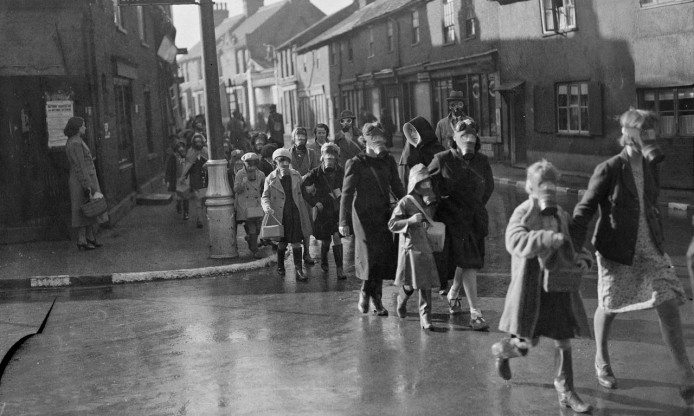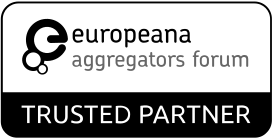img. John Topham, St Mary Cray, Kent UK, 1939 – A telling illustration of the dark clouds threatening Europe immediately prior to WWII: the St Josephs School children during a gas mask drill. © JohnTopham-TopFoto.co.uk
The 5th International Conference of Photography & Theory (ICPT2018) calls for paper in sight of the next edition of the conference, in Nicosia (Cyprus) on 22-24 November 2018. The theme is:
PHOTOGRAPHIES AND CONFLICT: ARCHIVING AND CONSUMING IMAGES OF STRIFE
Keynote Speakers:
Akram Zaatari. Filmmaker, photographer, archival artist, curator and co-founder of the Arab Image Foundation.
Anthony Downey. Professor of Visual Culture in the Middle East and North Africa, Birmingham School of Art, Founding Editor and Editor-in-Chief of Ibraaz.
As drones fly over our heads surveying our movements, it becomes evident that the fast evolving technologies of capturing images of war and violence have resulted, among other things, in an unprecedented extent of spectacles of conflict. Anaesthetized and disconcerted because of our repeated encounter with the visual representation of the ever increasing instances of strife, the potential democratic role of photographic images in addressing how we understand notions of pluralism, control, manipulation, terror and erasure gains precedence as we realize our numbness due to over-exposure. Propaganda, resistance and activism are re-narrated through a post- and yet neo-colonial frame of political intervention, control and detention by world powers, while the presence of photographic images of conflict has become firmly relocated, placed within contemporary art practice and the museum space. At the same time, due to the proliferating technologies of production, the multiplicity of photographic practices, genres, uses and migrations of photographs, we are compelled to start thinking about photographic endeavours in terms of a multitude of photographies instead of the singularity of photography.
The advancements of technologies enable the gathering, collecting and storing of more and more images, allowing us to explore the conflictual dynamics of collections and of the ways in which archives are shaped. Far from being interpreted merely as places of collection and order, archives have emphatically emerged as sites of social, historical, theoretical, artistic and political debate. Attempts to unravel the regenerative – sometimes even radical – potentials of state-ordained and institutional archiving practices reveal the disputed narratives of photographic archives and their role in chronicling conflict, materiality and dissonance. Oscillating between what we do or do not allow to be included, and moving between the rigidness and fluidity with which we construct our rhetorics of visibility and invisibility, photographic archives emerge as contested territories.
 The 2018 International Conference of Photography and Theory (ICPT2018) interweaves the ideas of the conflictual and the archival in relation to the photographic image. The open call is shaped on the basis of three thematic strands: Archiving Photographies; Wars, Tensions and Photographic Mediations; Photographies and conflict as Cultural Product. Proposals for presentations should be submitted for one of the three strands and should address, but are not limited to, the following topics:
The 2018 International Conference of Photography and Theory (ICPT2018) interweaves the ideas of the conflictual and the archival in relation to the photographic image. The open call is shaped on the basis of three thematic strands: Archiving Photographies; Wars, Tensions and Photographic Mediations; Photographies and conflict as Cultural Product. Proposals for presentations should be submitted for one of the three strands and should address, but are not limited to, the following topics:
Archiving Photographies
- Contesting the archive & contested archives
- Dissonant archives
- Affect and the embodied archive
- Archival activism
- Radical photographic archives, unarchiving, de-archiving
- The photographic archive as healing or as trauma
- The desire to archive contested narratives
- Propaganda and other specialized archives
- Contested biographies of an archive
- Archive, conflict and education
- Archives and photographic ecosystems
- Archiving and photographic materialities
- Invisible photographic archives
- Queer and queering photographic archives
- Conflict and interdisciplinary research into photographic archives
Conflicts and Photographic Mediations
- Technologies of surveillance photography (e.g. drone images)
- War reporting
- Distributing contested & contesting the distribution of photographic images
- Forensic photographies
- Democracy under threat, and the centrality of the photographic medium
- Multitudes and multiplicities: smartphone photographies as shared production, consumption, knowledge
- Whistle-blowing and photographies
- Control and manipulation of consuming photographies of conflict
- Erasure, appropriation and remixing
- Terrorism / anti-terrorism through contemporary photographic imagery
- Photographic everydayness in areas of on-going strife, socially armed conflict, violent divisions
- Photographies of domestic, urban, gender and other social and cultural conflicts
- Photographic mediations of conflict and education
- Voyeurism, ethics of producing and consuming photographies of conflict
- Regional debates on photographies and conflict
Photographies and Conflict as Cultural Product
- Photographic exhibitions of conflict
- Curatorial practices addressing and exploring conflict through photography
- Museums and photographies of conflict
- Artistic processes involving or related to photographies capturing conflict and contestation
- Exhibitions on propaganda and other politically-charged photographic practices
- Photographies, conflict, exhibitions and education
- Activism through contemporary photographic imagery
- Post-colonial lives of photographies
- Resistance through contemporary photographic imageries
- Violence and war through contemporary photographic imageries
- Photography and the conflict turn of contemporary art
SUBMISSION GUIDELINES
We invite proposals for 30-minute presentations (20 minutes presentation and 10 minutes for discussion) from various disciplines, such as: photography, art history and theory, visual sociology, anthropology, museology, philosophy, ethnography, education, cultural studies, visual and media studies, communications, and fine and graphic arts.
To propose a paper, please send:
a) A 400-word abstract with title (excluding references)
b) The full name of each author with current affiliation and full contact details (address, email, phone number and title of presentation) are, for the purposes of blind refereeing, to be sent separately with a short biographical note (200 words).
The two documents (abstract and contact details + bio) should be sent to icpt@photographyandtheory.com as Word files in English no later than May 7th, 2018.
Please do not send pdf files. Also, please note that the above deadline is final.
Submitted proposals will go through a blind peer-reviewing process and authors will be notified by June 15, 2018 if their papers have been accepted.
For more information and conference updates, please visit the IAPT website www.photographyandtheory.com
Members of the Organizing Committee (ICPT2018)
- Dr EvanthiaTselika, Chair, University of Nicosia, Cyprus/ Birkbeck University of London, UK
- Despo Pasia, Chair, UCL – Institute of Education, University of London, UK
- Nicolas Lambouris, Frederick University, Cyprus
- Dr Elena Stylianou, European University, Cyprus
- Dr Theopisti Stylianou-Lambert, Cyprus University of Technology
- Dr Yiannis Toumazis, Frederick University/ Nicosia Municipal Arts Centre and Pierides Foundation, Cyprus
- Nicos Philippou, University of Nicosia, Cyprus
- Artemis Eleftheriadou, Frederick University, Cyprus
Members of the Scientific Committee (ICPT2018)
- Prof. Liz Wells, University of Plymouth, UK
- Prof. Martha Langford, Concordia University, Canada
- Prof. Pam Meecham, University of London, UK
- Dr Gabriel Koureas, Birkbeck University of London, UK
- Dr Sarah Tuck, Valand Academy – University of Gothenburg& Hasselblad Foundation, Sweden
- Dr.Theopisti Stylianou-Lambert, Cyprus University of Technology
- Dr EvanthiaTselika, University of Nicosia, Cyprus/ Birkbeck, University of London, UK
- Despo Pasia, UCL – Institute of Education, UK
- Dr Elena Stylianou, European University, Cyprus
- Nicolas Lambouris, Frederick University, Cyprus


